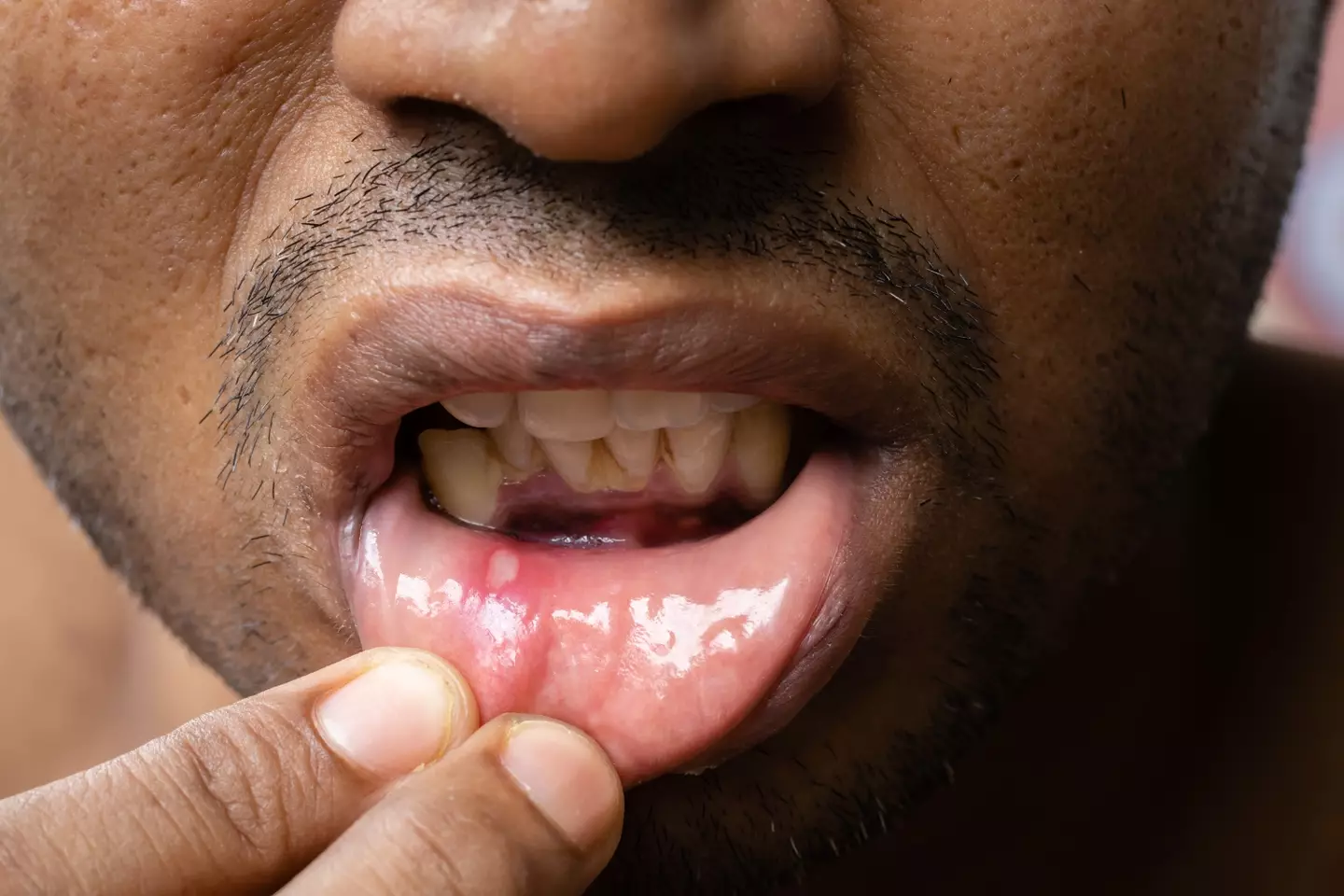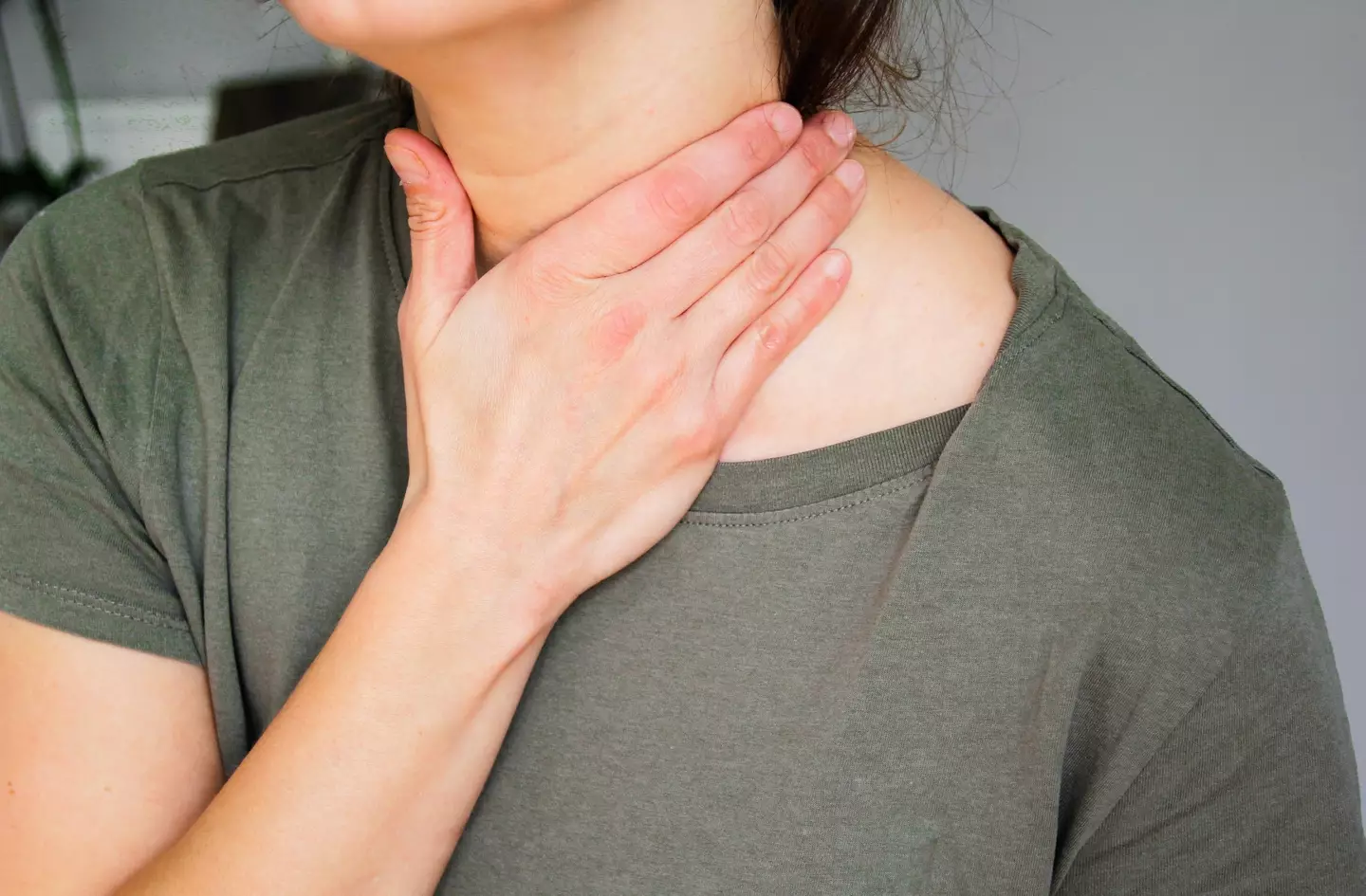
While also feeling like it’s flown by, 2024 has been a long year and many of us are beginning to feel run down, burnt out in the build up to Christmas, and the colder conditions certainly don’t help our health either.
And there’s one common oral health issue which can rear its head more now the temperature has dropped a few degrees.

It’s good to keep an eye on this common winter issue (Getty Stock Images)
Common winter issue
Ulcers can crop up anytime of the year but in winter they can be brought on more frequently, CareCredit explains, noting these types of ulcers in particular are known as ‘canker sores’.
“This is because saliva is needed to rid the mouth of bacteria and food particles that can cause infections, and the dry air leads to reduced saliva in the mouth.
“Also, the winter season compromises our immune system and leaves us more vulnerable to infections in the mouth, like canker sores.”
But when can mouth ulcers be a sign of something potentially more serious?

Do you have recurring mouth ulcers? (Getty Stock Images)
Sign of something potentially more serious
Well, oral surgeon at Dentum, Dr Andrej Bozic said, as quoted by SurreyLive: “Most mouth ulcers heal within 10 to 14 days. If a sore lingers beyond that, it could indicate something more serious, such as oral cancer, an autoimmune disease, or a chronic infection.
“Dehydration and a higher risk of infections during colder months can aggravate mouth ulcers. But any sore that persists shouldn’t be dismissed as seasonal – it’s crucial to have it checked.
“One of the early warning signs of oral cancer is a non-healing ulcer. These are often mistaken for minor injuries, but any ulcer persisting for more than three weeks should be taken seriously.”
And there are certain other symptoms to look out for.

Keep an eye out for other symptoms such as your throat hurting (Getty Stock Images)
Other symptoms to look out for
Alongside being aware of any ulcer which doesn’t heal after three weeks, you should keep an eye out for red or white patches in your mouth as well as any lumps.
If you have any lumps or swelling in your neck or jaw or pain around your throat and mouth then it’s good to keep a note of this too.
And particularly if it leads to you experiencing any difficulty swallowing, chewing or speaking.
However, there are ways to prevent and treat ulcers.

Gargling with salted water can help heal ulcers quicker (Getty Stock Images)
How to prevent ulcers
Reducing or stopping smoking and drinking can help prevent ulcers from forming – alongside existing ulcers being able to heal.
Spicy and acidic foods can also aggravate ulcers if you’re willing to wave goodbye to curries or fruit juices for a while.
If you do have an ulcer, washing your mouth with a mixture of warm water and salt can help encourage healing and using a soft-bristled toothbrush can also ensure you’re not aggravating the tissue inside your mouth which could lead to ulcers forming.
If you’re concerned, it’s always best to consult a medical professional.


